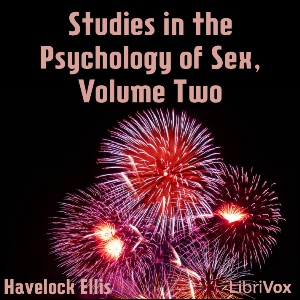This short book was written in 1920, and in it Chesterton, with his usual wit and incisive logic, presents a series of articles defending marriage and indicating the weaknesses in divorce. He did this 16 years before the first Christian denomination in the world allowed its members to divorce. Till then Christendom was unanimous in standing against it. Chesterton saw clearly the trends of this time, and delivered this defense. (Summary by Ray Clare)
9 episodes
In this short pamphlet, Annie Besant - a well-known British women's rights activist - lays down British marriage laws as they were at her time. She opposes the view of married women as mere property of their husbands, with virtually no rights of their own, and makes suggestions for the improvement of marriage law, footed on equality of the sexes. In the second part of the pamphlet, she advocates for a law governing full divorce, instead of only the separation of husband and wife the church was granting, unwillingly, if at all.
Although the pamphlet was written in 1882, Besants views of equality of men and women in both marriage and divorce law are surprisingly modern. Her ideas of shared parenting in case of a divorce have not been realised until very recently.
5 episodes
The second of six volumes, this volume covers in extensive detail the topic of "Sexual Inversion", or homosexuality to give it a more current name. Written as an anthropological and psychological study from the point of view of Havelock, the famous British sexologist of the late 19th century, who was also a physician and social reformer. (Summary by Tim Ferreira and John Fricker)
37 episodes

Luise Büchner war eine deutsche Schriftstellerin und Frauenrechtlerin. In ihrem Buch "Die Frauen und ihr Beruf", erstmals erschienen 1855, vertritt sie vehement die Meinung, daß Mädchen und Knaben die gleiche Bildung erlangen sollen. Darüber hinaus legt sie ihre Vorstellungen zur Verbesserung der sozialen und wirtschaftlichen Stellung der Frauen dar, und schreibt beispielsweise über den Segen der Arbeit für Frauen aus allen gesellschaftlichen Schichten.
Im Vorwort zur 1. Auflage schreibt Luise Büchner: Die nachfolgenden Blätter erheben keinerlei Anspruch darauf, für eine pädagogische Schrift zu gelten: ihr einziger Zweck ist der, anzuregen und ein ungefähres Ideal dessen aufzustellen, was die Frau der heutigen Zeit für sich erstreben sollte. Wenn wir uns erst klar über die Endpunkte einer Frage sind, die man heute so lebhaft hin und her erörtert, dann wird es der eigentlichen Erziehung ein Leichtes sein, die Wege aufzufinden, welche dahin führen.
Diese Aufnahme ist von der 4. Auflage 1872.
21 episodes
This book doesn't advise against marriage but just offers advice on the errors some people can make who make the wrong choice when entering into so long a contract. - Summary by Michele Eaton
11 episodes
Mary Edwards Walker was a physician and surgeon who served in the Civil War. An abolitionist, prohibitionist, and cross-dressing leader of the women's dress reform movement, she published this lively sex manual in 1878. It is a curious blend of useful information and Victorian sexual mythology, at once puritanical and explicit. (Summary by Pamela Nagami)
15 episodes
This work details personal memories of Mary Emily Donelson Wilcox, adopted granddaughter (acutally grand niece) of Rachel Donelson Jackson, wife of President Andrew Jackson, and assumed to be the first baby born in the White House. The book focuses on three Christmas memories--the first of a Christmas in the White House during the 1830's and Jackson's Presidency; the second, a Christmas in Prussia at the home of the Crown Prince, to which she was invited because her father was US minister to Berlin; the last story, a Christmas in Texas in the 1830s. Unlike the first two stories, the third one does appear to be a personal memory, but a recounting of a story, possibly told to her as she lived in Texas while her father served as US Commissioner to the Texas Republic. Summary by Dr. P. Gould.
3 episodes
Written over a century ago, this comprehensive book offers insight into the methods used (still to this day, in spite of modern computers) to research and compile a family history. As stated in the preface of the book, "Strong emphasis is laid upon the importance of employing the historical method..." which is sorely lacking in today's computerized compilations. - Summary by Roger Melin
8 episodes
In the spring of 1850, while the United States was polarized over the slavery debate and Daniel Webster was negotiating the compromise of that year, the outspoken abolitionist, feminist, and journalist, Jane Grey Swisshelm (1815-1884) unleashed a congressional sex scandal. Frustrated by what she saw as the Massachusetts senator's surrender to the Southern Slave Power, she published an article alleging Webster's marital infidelities with women of color. As a result of the media storm that followed, Swisshelm lost her job at the New York Tribune. This is but one of the many episodes found in her 1880 autobiography, "Half a Century," which is a narrative of the frontier, of the fight against slavery, and of Swisshelm's fearless, compassionate, and innovative work as a surgical nurse treating Union soldiers who had suffered the most terrible wounds of war. (Pamela Nagami, M.D.)
81 episodes
''Bringing up the Boy'' is, according to its subtitle, ''A Message to Fathers and Mothers from a Boy of Yesterday concerning the Men of To-morrow'' and proffers advice for parents on raising boys from infancy until adulthood, to become fine, upstanding men. The fact that boys are temperamentally, emotionally and physically different from girls is never lost sight of in the discussions in the various chapters. Discussions include: advice on allowing boys to settle their own differences, without interference, but with advice; the Santa Claus myth; the best ways to discipline the boy, to ensure he gets the message; advice on how to talk with your boy regarding smoking, drinking, sex, puberty, and keeping a clean mind as well as a clean body. The author's advice is from his experiences in raising his boy, and the fact that he was once a boy. So many parents often forget that they were once boys and girls themselves. (Donald Cummings)
9 episodes
Many men who go out into the world while still very young to earn their living have few opportunities of acquiring a knowledge of social observances. Should this little manual of manners be of use to any such in enabling them to master the theory, as it were, of social customs in the educated classes, it will have attained its aim. (Mrs. Humphry)
25 episodes
This short work attempts to establish that Jesus had black ancestry dating back to Ham, the son of Noah, who had been made black-skinned as a punishment for having seen his father naked. Furthermore, Canaanites are here also identified as being black, and according to the author, several important Jewish figures and ancestors of Jesus had children by this group of people. - Summary by Jim Locke
5 episodes
Jung says the following in his introduction: "in these lectures I have attempted to reconcile my practical experiences in psychoanalysis with the existing theory, or rather, with the approaches to such a theory." He goes on to say, "Here is my attitude towards those principles which my honored teacher Sigmund Freud has evolved from the experience of many decades." Some topics considered in this light are infantile sexuality, the conception of the libido, the unconscious, the dream, repression, and the etiology of neuroses.
13 episodes












